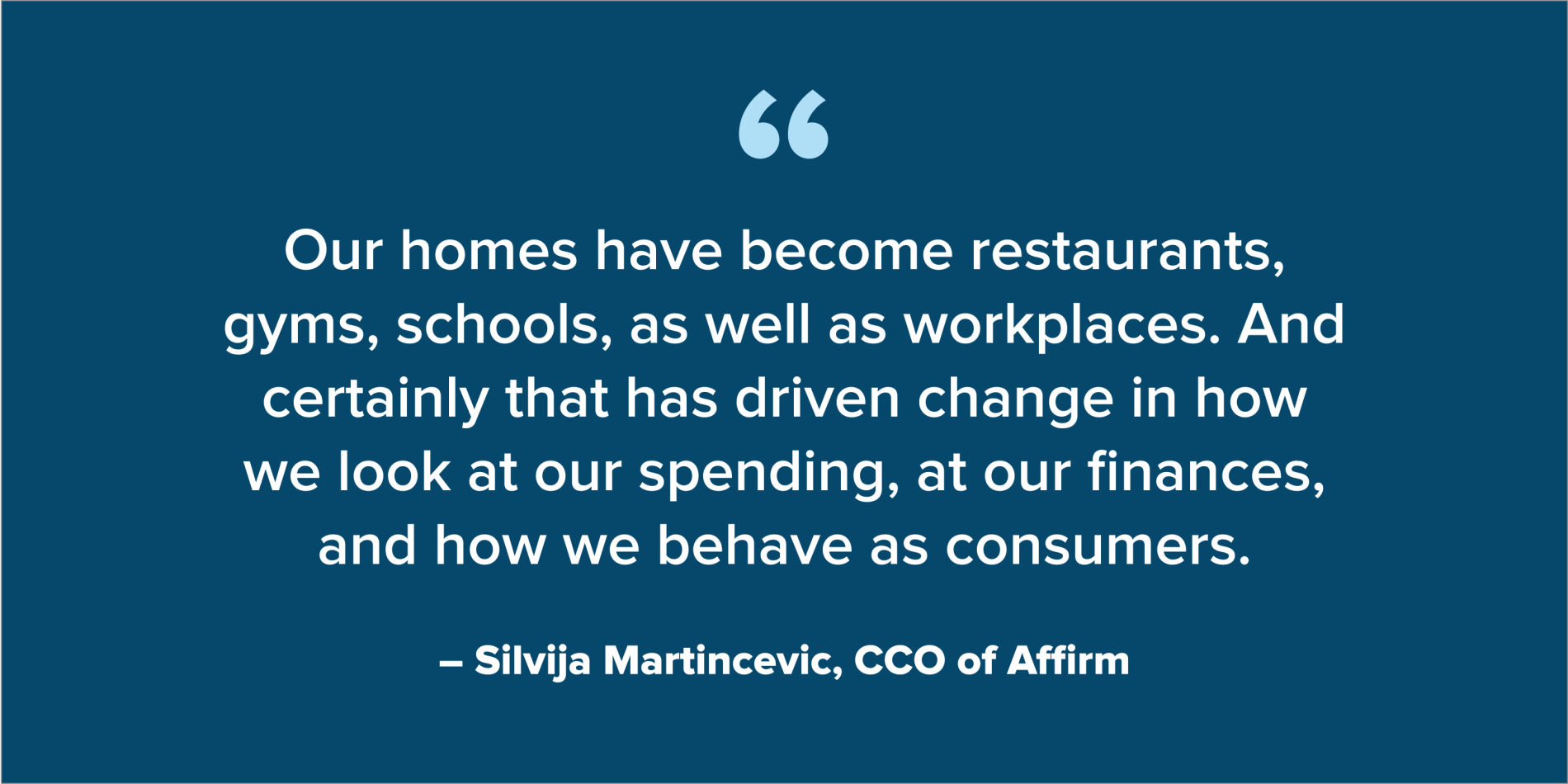
How shifting consumer values are changing online payments
“There are moments in time when the world changes forever. This is one of those times.”
That’s how Affirm’s Chief Commercial Officer Silvija Martincevic described the impact two recent crises—the global coronavirus pandemic and widespread unrest over racial injustice—are having on our communities across the country. Her remarks were part of an online discussion with The Business of Fashion about how consumer values are changing commerce today.
‘New essentials’ emphasize comfort at home
The shelter-in-place orders that came with the pandemic changed how consumers spend their money and what they expect from retailers. “Our homes have become restaurants, gyms, schools, as well as workplaces,” Martincevic said during the event last week.
This transformation caused a massive shift toward online buying of “new essentials,” including comfortable clothes, cookware, furniture, and fitness gear. Here’s how Affirm sales volume reflected this trend:
20% growth in home furnishings
70% growth in kitchen equipment
200% growth in office-related products
She also noted a 23% increase in average daily volume for luxury fashion retailers with Affirm. And this category may grow further in coming months, she said, citing the “revenge spending” that emerged in China after the lockdowns lifted.
Opportunity grows for new shopping experiences
Flexible payments have become a priority for consumers, as many have constrained budgets and reduced incomes. This in turn presents an opportunity for retailers. Martincevic noted that many small and mid-market retailers are doubling down on digital efforts to acquire new customers with flexible payments. In fact, the number of mid-market merchants that partnered with Affirm more than doubled from February to March.
Two-thirds of Americans have tried pay-over-time options, and research has shown more than half of consumers actively favor brands that offer this kind of payment flexibility.
“The coronavirus crisis will cement that appeal with consumers,” Martincevic predicted. Retailers who offer alternative payments can increase conversion, cart sizes, and repeat purchase rates, according to Affirm data. She added that flexible payments will also widen the sales funnel for many retailers as online spending keeps growing.
The popularity of mobile commerce will add a layer to omnichannel options, Martincevic said. Safety concerns will make contactless payments a major priority—even as consumers go back into stores. Mobile payment options, such as Affirm, will help drive this change.
Technology and values will drive growth
The massive shift in online and mobile purchasing is “here to stay,” Martincevic said. This is a time for retail businesses to be nimble with technology, from mobile customer onboarding to social media marketing to localized push notifications.
She noted that in China mobile phone usage rose 30 minutes per day during the height of the coronavirus crisis. Weeks after China’s restrictions eased, mobile usage remained at the higher level.
Martincevic urged retailers to lean in to values of transparency and accountability so they can stand on “the right side of history”—especially in light of growing efforts toward racial justice. Shoppers will “vote with their wallets” and buy from brands that are authentic and driving change, she said. Consumers will also need more payment options as we face a recession, and they’ll favor businesses that avoid gimmicks, hidden fees, and fine print.
Watch the full discussion with The Business of Fashion.




